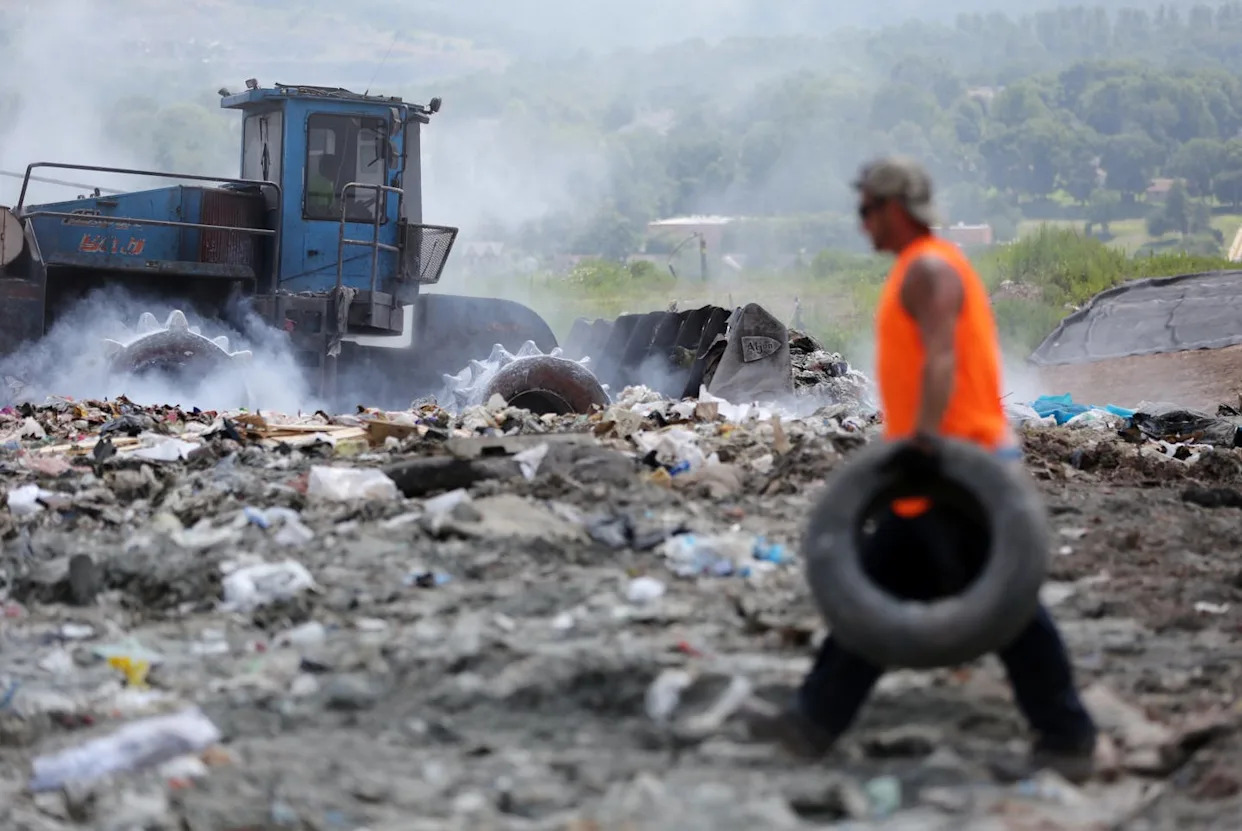Science
Is Space the Future for Earth’s Growing Trash Problem?

Concerns about waste management on Earth have sparked discussions about the possibility of sending trash into space. With the planet already burdened by over 30 trillion tons of waste produced since the Industrial Revolution, the question arises: could we eventually resort to disposing of our garbage beyond our atmosphere? This inquiry was posed by Aiden, a 13-year-old from Maryland Heights, Missouri, highlighting a pressing environmental issue.
The sheer volume of waste generated globally is staggering. Currently, people contribute approximately 350 million tons of waste daily, much of which is poorly managed. This mismanagement leads to serious health risks for communities, contaminates soil, and results in substantial amounts of waste finding its way into oceans, thereby threatening marine ecosystems.
Exploring Space Trash Solutions
The idea of sending waste into space, while seemingly far-fetched, has been proposed by some researchers, particularly regarding the disposal of used radioactive fuel rods from nuclear power plants. This type of waste remains hazardous for tens of thousands of years, and current Earth-based disposal methods have proven inadequate. However, plans to launch such waste into space have not progressed, primarily due to significant risks and costs. For instance, the potential for a rocket carrying hazardous materials to explode during launch poses a serious danger. Additionally, the financial implications of space disposal would far exceed the costs associated with safer terrestrial storage.
Moreover, there is an existing problem with “space junk,” which includes defunct satellites and debris orbiting the Earth. NASA estimates that more than half a million pieces of debris, at least the size of a marble, are currently in orbit. These objects travel at high speeds, making the prospect of adding more waste to space particularly unwise.
Rather than looking to the cosmos for solutions, a more effective approach would be to focus on reducing waste generation on Earth. Governments play a crucial role in setting regulations that influence waste management practices, such as restrictions on single-use plastic bags. However, individuals can also take significant steps to minimize their waste footprint.
The 3 Rs and Beyond
Many people are familiar with the “3 Rs” of waste management: reduce, reuse, and recycle. Each of these actions contributes to less waste ending up in landfills and incinerators. Opting for reusable items, such as mugs, cutlery, and grocery bags, instead of single-use plastics can significantly cut down on waste.
Some cities have implemented programs to collect organic waste, such as food scraps and yard trimmings, converting them into compost—a valuable resource for gardeners and landscapers. Home composting is also an option for many individuals looking to reduce their waste impact.
Reusing items by purchasing secondhand goods or donating usable items is another excellent strategy. Networks like Freecycle facilitate the exchange of goods, allowing people to give away items they no longer need while acquiring different ones.
Recycling plays a vital role in waste reduction. In 2018, nearly one-third of municipal solid waste in the U.S. was either recycled or composted. While some materials, such as plastic bags and straws, can be challenging to recycle, others like aluminum cans, paper, and cardboard have much higher recycling rates. Understanding local recycling rules is crucial, as these can vary significantly by region.
Beyond the core 3 Rs, there is a growing conversation about additional strategies. Concepts like repair, reclaim, and reimagine focus on extending the life of products and reducing consumption. Advocates for the “right to repair” are pushing for legislation that would allow consumers access to the information and parts necessary to repair their goods, from electronics to vehicles, rather than simply replacing them.
As discussions about waste disposal continue, the focus remains on finding practical solutions on Earth before space becomes the only avenue left for disposal. With community efforts and individual actions, reducing waste is more achievable than many might think.
This article was informed by insights from Kate O’Neill from the University of California, Berkeley, who emphasizes the importance of sustainable waste management practices to mitigate environmental impacts.
-

 Technology5 months ago
Technology5 months agoDiscover the Top 10 Calorie Counting Apps of 2025
-

 Technology2 weeks ago
Technology2 weeks agoOpenAI to Implement Age Verification for ChatGPT by December 2025
-

 Health3 months ago
Health3 months agoBella Hadid Shares Health Update After Treatment for Lyme Disease
-

 Health3 months ago
Health3 months agoErin Bates Shares Recovery Update Following Sepsis Complications
-

 Health3 months ago
Health3 months agoAnalysts Project Stronger Growth for Apple’s iPhone 17 Lineup
-

 Technology5 months ago
Technology5 months agoDiscover How to Reverse Image Search Using ChatGPT Effortlessly
-

 Technology3 months ago
Technology3 months agoElectric Moto Influencer Surronster Arrested in Tijuana
-

 Technology2 months ago
Technology2 months agoDiscover 2025’s Top GPUs for Exceptional 4K Gaming Performance
-

 Technology5 months ago
Technology5 months agoMeta Initiates $60B AI Data Center Expansion, Starting in Ohio
-

 Technology5 months ago
Technology5 months agoRecovering a Suspended TikTok Account: A Step-by-Step Guide
-

 Health5 months ago
Health5 months agoTested: Rab Firewall Mountain Jacket Survives Harsh Conditions
-

 Lifestyle5 months ago
Lifestyle5 months agoBelton Family Reunites After Daughter Survives Hill Country Floods





















